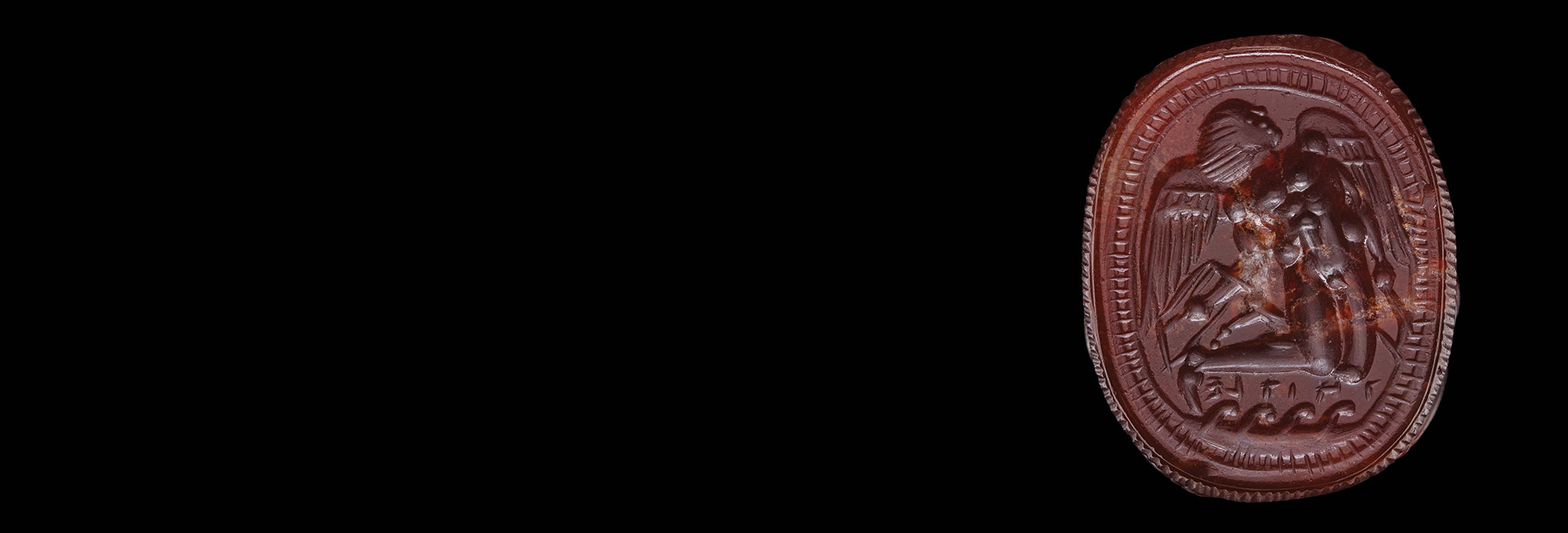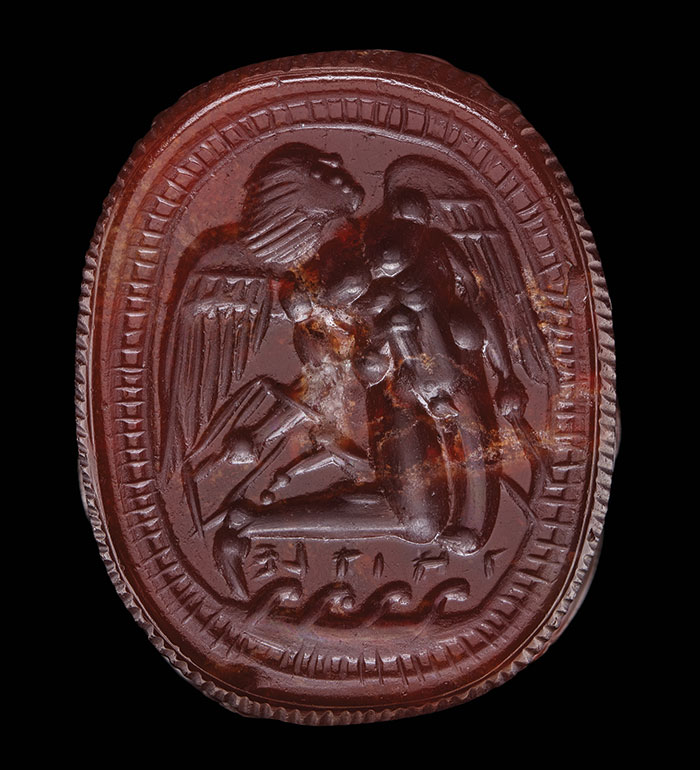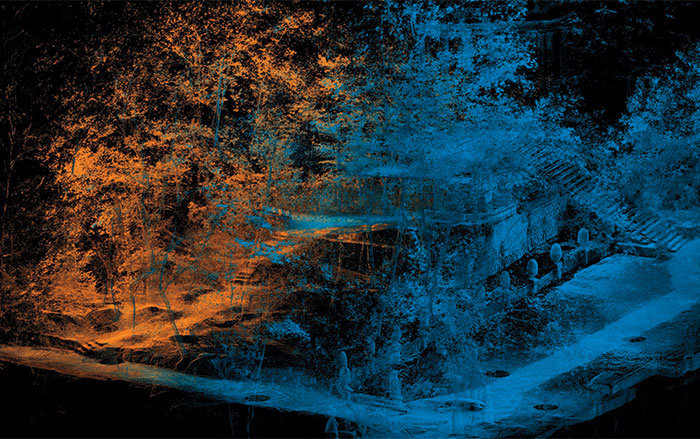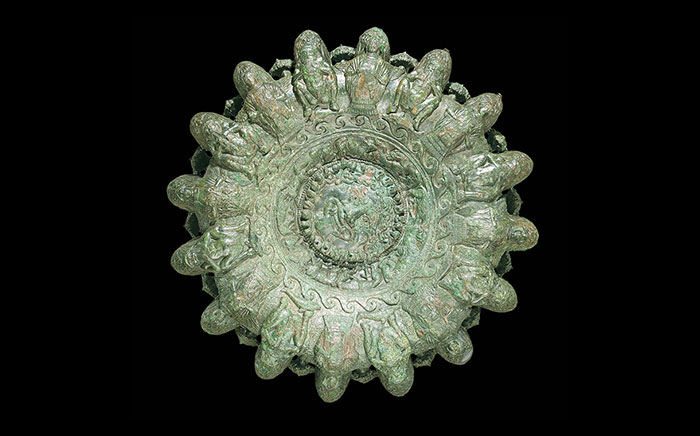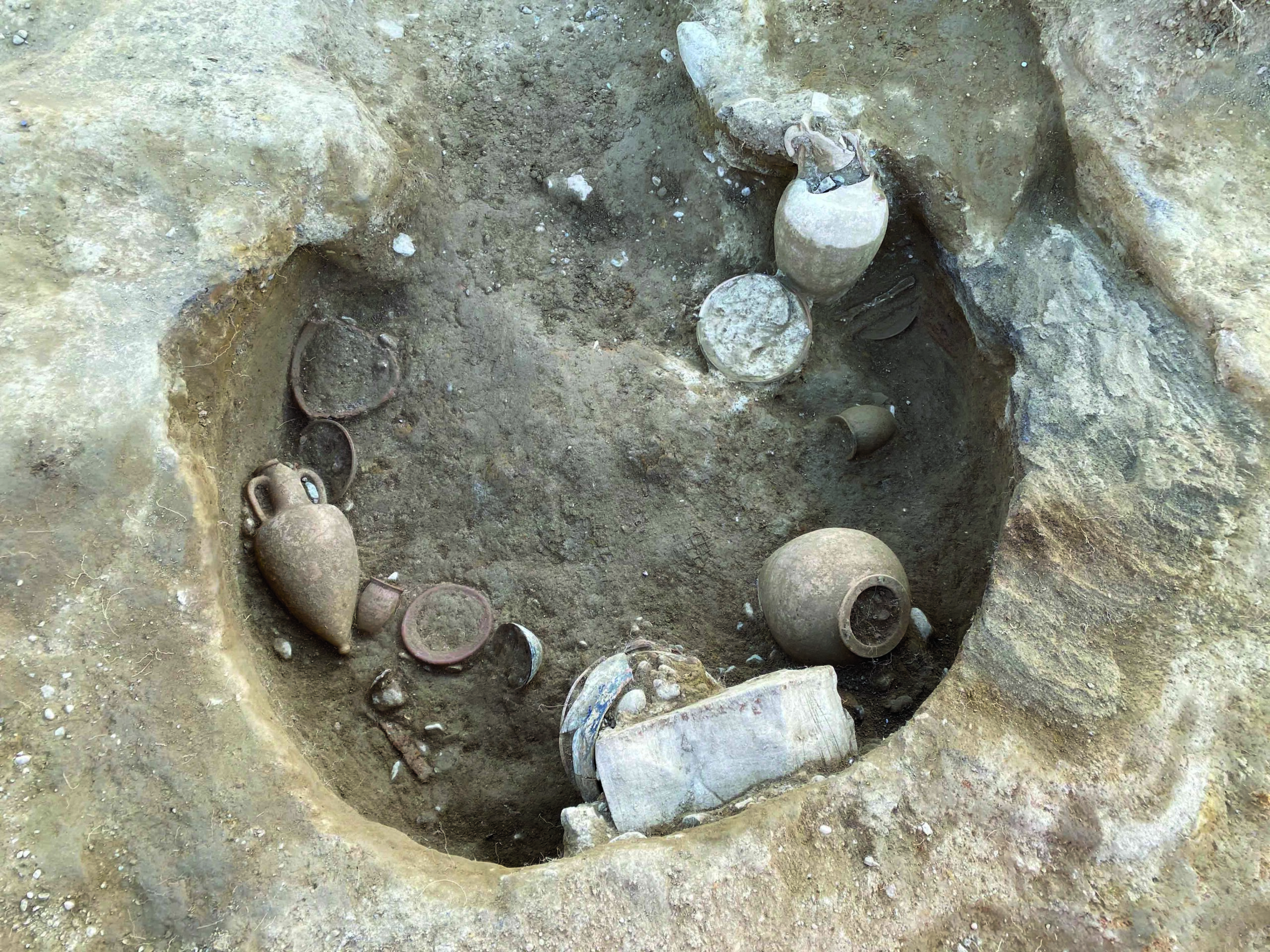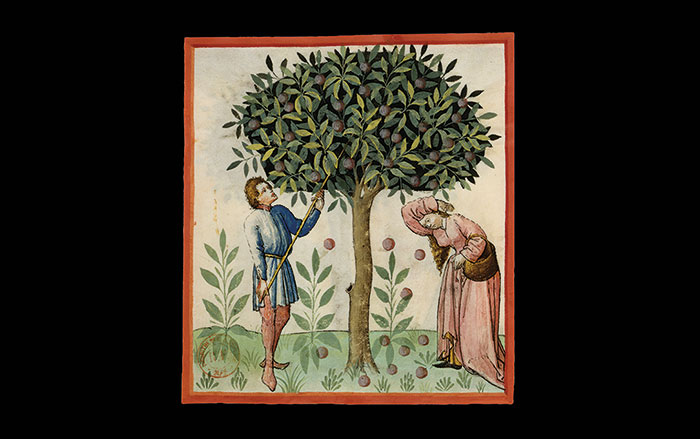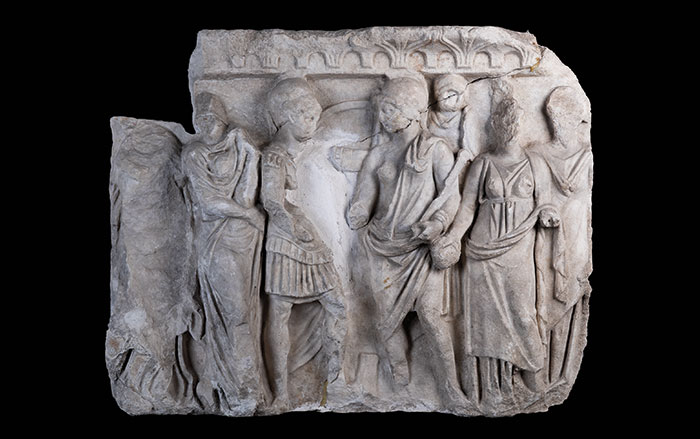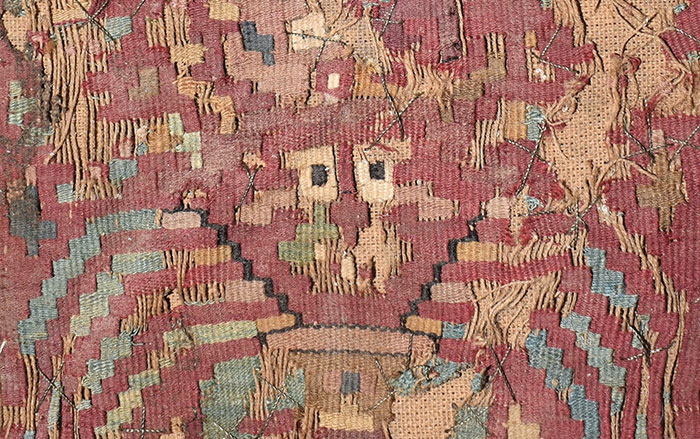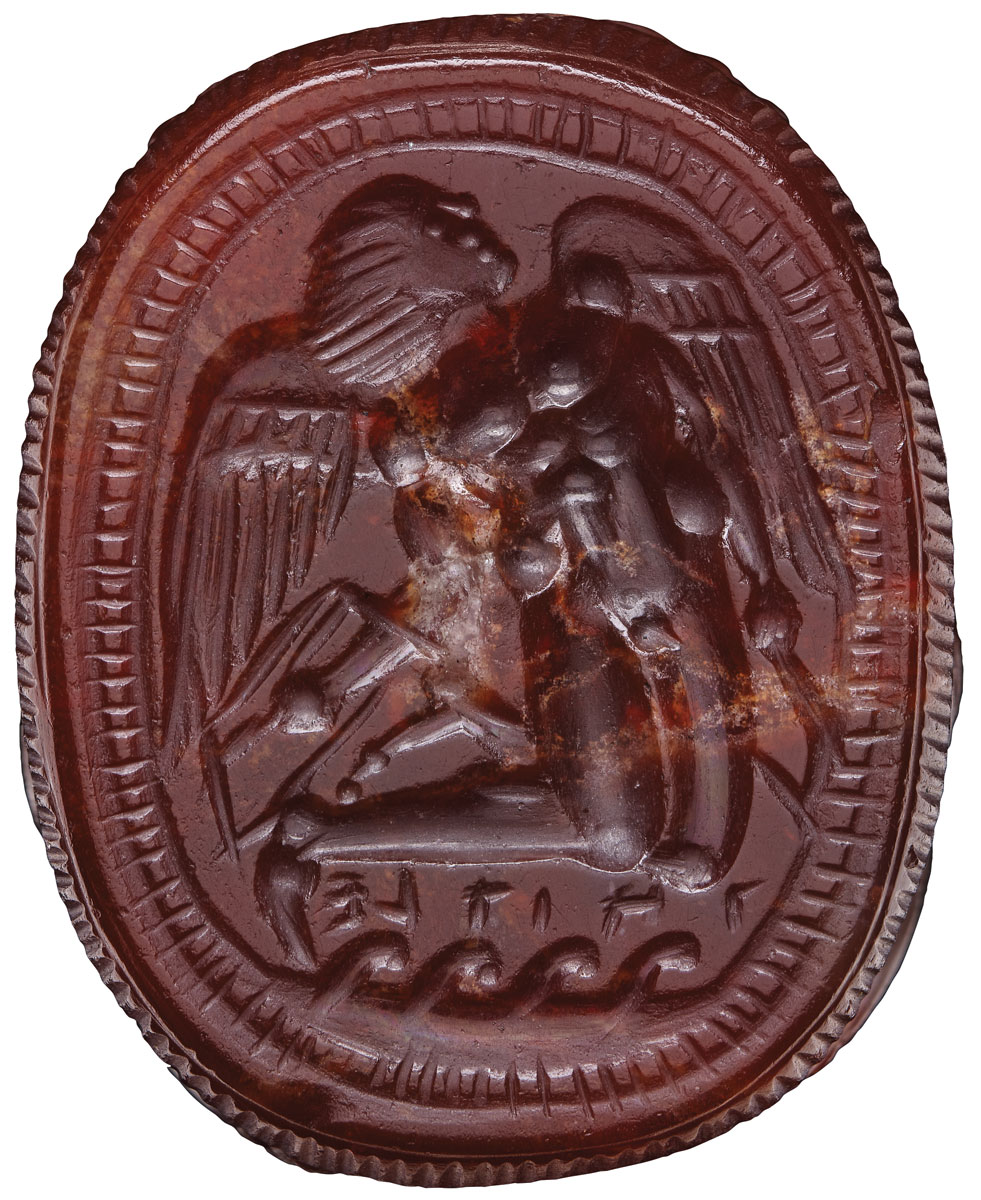
What is it?
Carved gemstone
Material
Carnelian
Culture
Etruscan
Date
450–400 b.c.
Dimensions
0.66 inches long,
0.55 inches wide
Found
Etruria
For ancient craftspeople, who had to fashion everything by hand, specialized tools such as saws and awls must have been among their most prized possessions. For a people as artistically accomplished as the Etruscans, who flourished in central Italy from the eighth to third century b.c., these implements would have been invaluable. Very few examples of Etruscan tools survive, their wooden handles having long ago rotted and their iron blades having been melted down for other uses. One place to look for evidence of the kinds of tools the Etruscans used is on some of the tiniest, most finely detailed objects they created.
The carving on this gemstone depicts the mythological carpenter Taitle, whose name is inscribed at the bottom. Taitle is the Etruscan equivalent of Daedalus, the Greek inventor who fashioned wings for himself and his son Icarus, whose Etruscan counterpart is named Vikare. Together, father and son used the wings to escape the island of Crete, where the pair were imprisoned lest they expose the secrets of the labyrinth that Daedalus had designed.
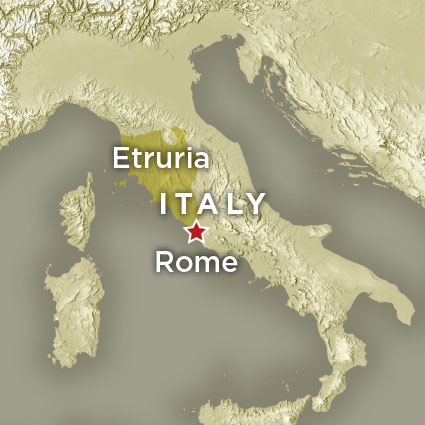
“Taitle is an important figure for craftspeople, especially for the Etruscans,” says archaeologist Holly Piper of the Nevada State Museum, Las Vegas. Artisans frequently depicted Taitle wearing or constructing wings, as well as using woodworking tools such as the frame saw—a flexible blade held by tension on a rectangular frame—which he holds in his right hand. “Etruscan artistic representations of artisans’ tools are significant because they help us understand what something like a frame saw actually looked like, which can flesh out our understanding of the development and spread of tools on the Italian peninsula,” Piper says. “Often the invention of a certain type of tool is credited to the Romans because a Roman author wrote about it, but many of these tools actually have much earlier origins, and the Roman tool is just the final stage.”


